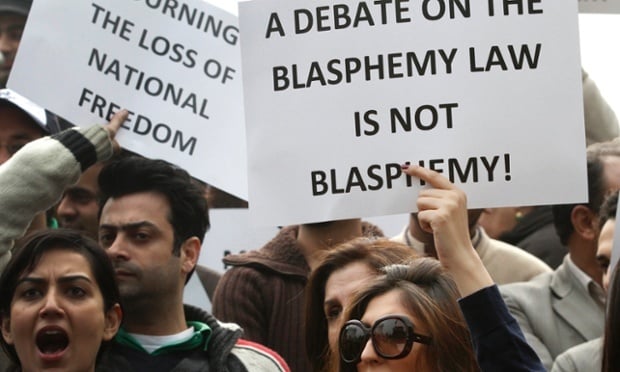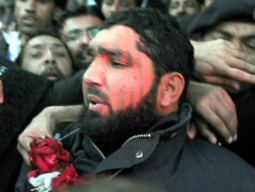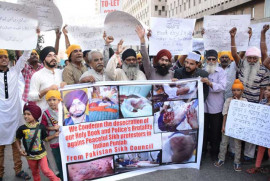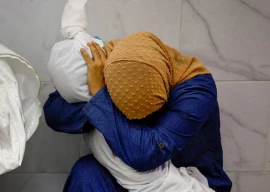
While asserting that people facing blasphemy accusations in Pakistan are often faced with flawed proceedings, the International Commission of Jurists (ICJ) has urged the government to amend all blasphemy laws in order to make them consistent with international standards and abolish mandatory death penalty in such cases.
In a 60-page report titled On Trial: the Implementation of Pakistan’s Blasphemy Laws, the ICJ noted that widespread violations of fair trial exist in proceedings related to blasphemy charges, particularly in trial courts.
Highlighting the problems in blasphemy trials, the report said the intimidation and harassment of judges and lawyers related to blasphemy proceeding not only create hurdles in ensuring fair trial in such cases but also obstructs the right of the accused to defend.
The report claimed that judges often show “demonstrable bias and prejudice against defendants” during the course of blasphemy proceedings and in judgments, while defendants are often kept in prolonged pre-trial detention and bail pleas are rejected.
Condemning the prosecution and detention of people with mental disabilities in blasphemy cases, the report said the incompetent investigation and prosecution that do not meet due diligence requirements under the law add to the woes of the blasphemy accused.
Pakistan isolates Aasia Bibi after security fears
“Pakistan’s blasphemy laws fly in the face of Pakistan’s international legal obligations, including the duties to respect the rights of freedom of expression and freedom of religion and belief,” said ICJ Asia Director Sam Zarifi. “But even worse, those facing accusations of blasphemy suffer through trials that are often fundamentally unfair.”
Pointing at authorities’ failure to protect blasphemy accused in custody, the report said, “In many cases, blasphemy accused awaiting trial or serving sentences following convictions have been assaulted while held in custody.”
Explaining how the accused and their lawyers as well as judges are intimidated, the report said members of extremist religious groups often pack courtrooms, especially at the trial court level, creating an intimidating atmosphere for everyone, including the accused, their counsels and the judges. Due to such tactics used by extremist elements, blasphemy-related trials are often held in jails or in camera.
Besides intimidating lawyers and judges associated with blasphemy cases by appearing in large numbers at trial courts, it is quite common for counsels defending a blasphemy accused to receive threats from extremist elements to stop them from representing the accused, ICJ said. Sometimes these threats are materialised as it happened in the case of human rights lawyer Rashid Rehman, who was killed in May 2014 after he was repeated threatened to stop representing a blasphemy accused.
Under threat rights lawyer Rashid Rehman Khan shot dead in Multan
In 19 of 25 cases under section 295-C included by the ICJ in its report, high courts have acquitted individuals convicted for blasphemy by trial courts. Over 80% of acquittals were granted on the grounds procedural irregularities and mala fide complaints.
Along with recommending amendments in blasphemy laws, ICJ urged the government to abolish mandatory death penalty in the cases registered under section 295-C of PPC.
Other recommendations suggested by the ICJ in its report include that the requirement of proof of deliberate and malicious intent in all offences related to religion that are retained in the short or long term, particularly section 295-C should be included. While it strongly recommended that “criminal cases must be registered where courts have concluded or there are reasonable grounds to believe that complainants and/or the witnesses in blasphemy cases have committed perjury”.
ICJ also recommended that amendments be made in the Code of Criminal Procedure to remove the requirement of Muslim judges presiding over 295-C trials and urged the government to remove section 295-A from the list of scheduled offences under the Anti-Terrorism Act, 1997.


































































COMMENTS (9)
Comments are moderated and generally will be posted if they are on-topic and not abusive.
For more information, please see our Comments FAQ